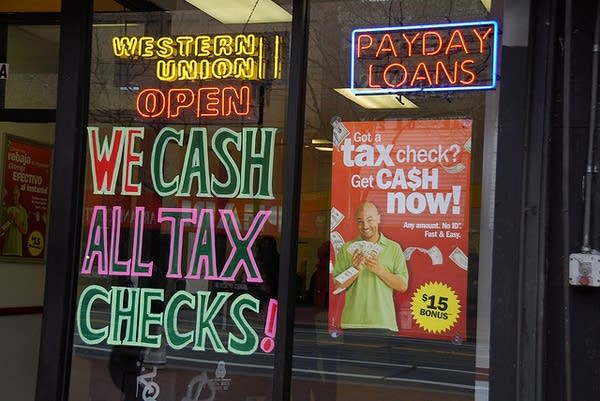Can we solve the payday loan debt trap?

High interest rates on short-term consumer loans can spiral into crushing debt. On Tuesday, guest host and senior economics contributor Chris Farrell talks to a lawyer and a nonprofit advocate about the latest efforts to curb payday loans.
Photo by Steve Rhodes via Flickr 2009
Go Deeper.
Create an account or log in to save stories.
Like this?
Thanks for liking this story! We have added it to a list of your favorite stories.


